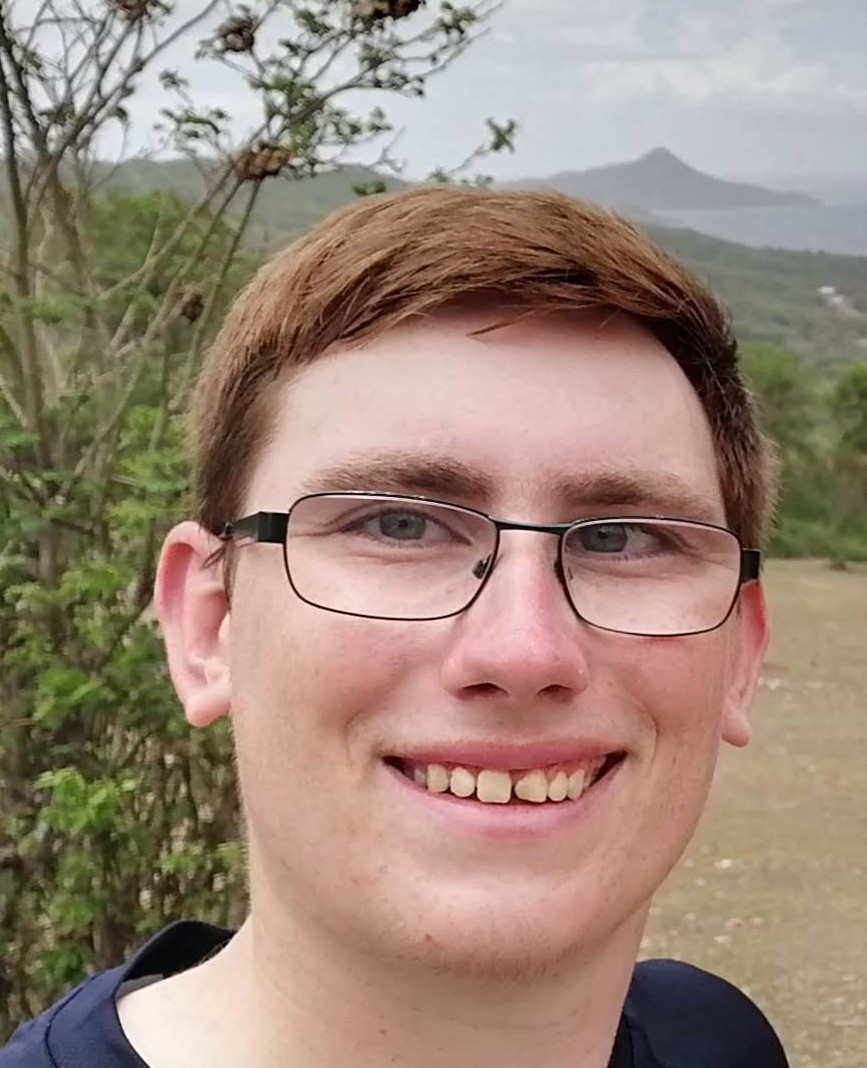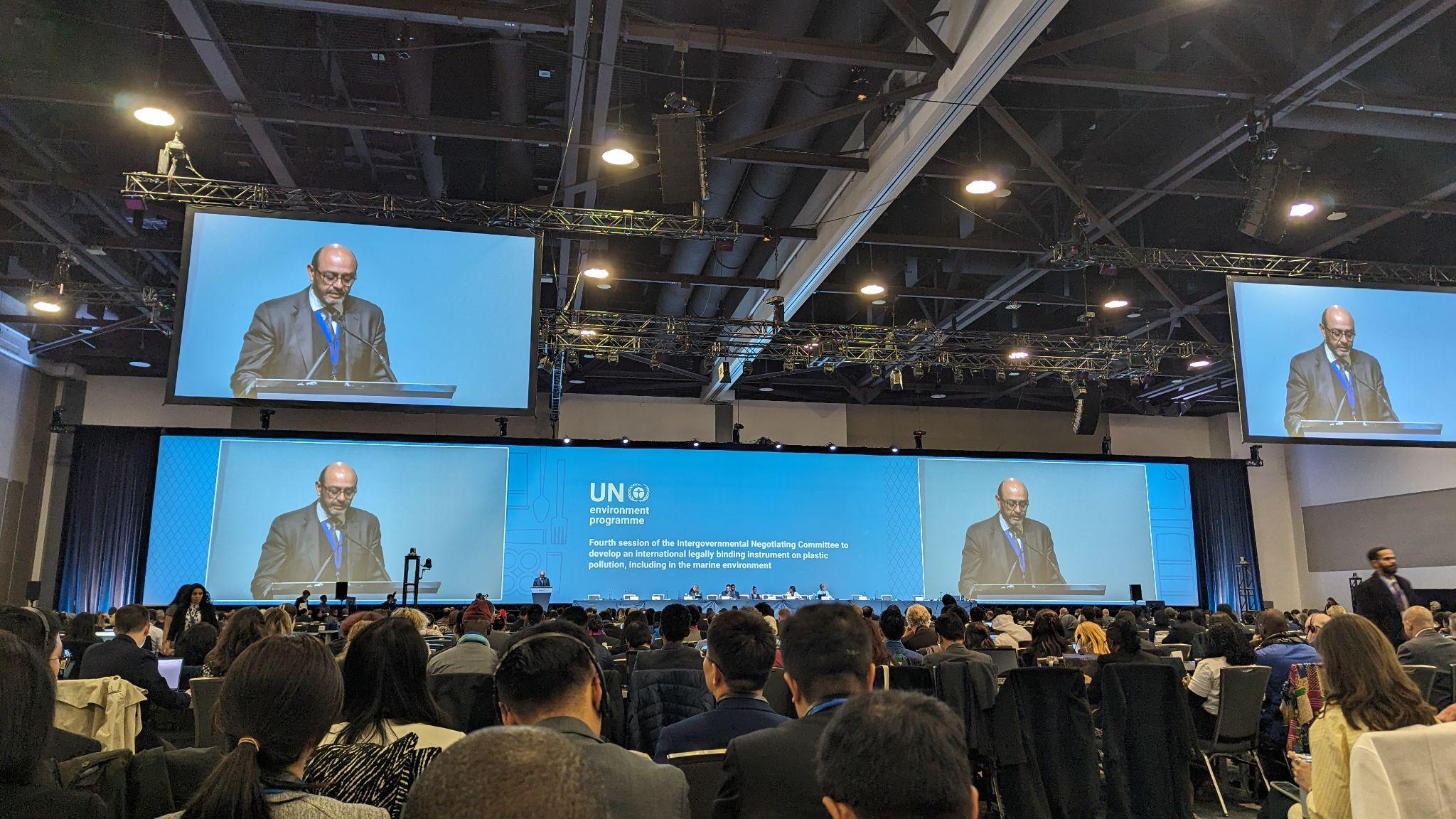
By the fourth set of negotiations, the opposing camps, their goals and tactics are well-established. Members arguing for a fossil-fuel friendly treaty reliant on national action plans and downstream measures ferment obfuscation and delay, while delegates seeking a high-ambition, enforceable treaty addressing every stage of the plastics cycle argue there is not a moment to lose. Sam Winton breaks down the events of day 1.
At 10:17am eastern time on the 23rd April, the fourth session of the Intergovernmental Negotiating Committee to develop an international legally binding instrument on plastic pollution, including in the marine environment (INC-4) kicked off in Ottawa, Canada. In bringing the session to order, the incoming Chair, Ambassador Luis Vayas Valdivieso affirmed his commitment to do all that he can to help deliver a treaty which reflects the urgency of ending the plastic pollution crisis. The Chair has set out a proposed organisation of work which reflects this urgency, calling on members to be mindful of the limited time available when delivering statements and, to the credit of both the Chair and members of the committee, the initial agenda items passed quickly with minimal delay. The committee was therefore able to progress rapidly to opening statements on the preparation of the treaty, the session’s primary agenda item.
In these opening statements, a number of key themes have persisted from INC-3. On the positive side there is continued wide support for measures including; just transition, financial and technical assistance to aid implementation in low capacity countries, and ensuring coordination with existing MEAs (multi-lateral Environmental Agreements). However, there are also key challenges which have been carried over. Notably the like-minded group of predominantly oil producing countries continue to urge a ‘cautious and realistic’ treaty which does not impinge on their rights to exploit their own resources or impact their ability to trade, citing WTO jurisdiction on these matters. This argument is linked to a desire to see the treaty limited to downstream measures including improved waste management. Science is clear that the failure to deliver system change, including upstream measures would undermine any future treaty and it is vitally important that other members remain resolute in opposing this view. Two interventions from this group expressed viewpoints which were particularly troubling. First, the intervention of Iran argued that developed countries should have legally binding measures applied, while developing countries should only be subject to voluntary measures, and second, Malaysia argued for no legally binding measures at all. Clear, timebound, global and legally binding targets must be a cornerstone of this treaty and any argument against this must be defeated.

Ambassador Luis Vayas Valdivieso, incoming Chair of the INC, opens the fourth session of the Intergovernmental Negotiating Committee to develop an international legally binding instrument on plastic pollution, including in the marine environment (INC-4) (Photo: Sam Winton)
Interventions referencing the proposed organisation of work were mixed. On the positive end, no member offered a strong challenge to the validity of the revised Draft Text as a basis for discussion. This is vital as it allows members to progress with substantive textual discussions. Similarly, members of the committee are nearly unanimous in their support for a program of intersessional work to be agreed between now and INC-5. However, the like-minded group have called for any intersessional work to be limited to downstream measures, particularly waste management. Anyone who was following the final hours of INC-3 will remember how intersessional work was blocked and it is hard to ignore the fear that this could happen again. There have also been arguments to delay aspects of the organisation of work. Most notably, the Chair’s proposal to form a legal drafting group in the second half of the session faces opposition. This group would provide support to ensure that any text revisions are drafted in a legally sound manner and is likely to help progress the process. However, the like-minded group have argued that this should not be formed until INC-5. Some members were also arguing against parallel meetings of more than 1 contact group, a move which would further reduce the negotiating time available.
When considering the challenges posed by the opening statements, 3 key narratives come to my mind. Firstly, among those countries seeking to water down the treaty, it feels like the chosen tactic at this session may be to delay. This was heavily hinted when the representative of Kuwait, on behalf of the like minded group, stated that ‘we must not rush to an agreement’ and should ‘emphasise quality over expediency’. This is a statement which could be interpreted as seeking to add further INCs to the process, lengthening its timeline. Second is a strong call for the treaty to consider ‘common but differentiated responsibility’ with nationally set, voluntary targets. While it is of course important to recognise the different capacities of members, a Paris style voluntary agreement cannot be the goal for this treaty as evidenced by research conducted by the University of Portsmouth’s Global Plastics Policy Centre. Third, while it is positive that the committee was able to progress through the opening agenda points quickly, it meant that no significant discussion has occurred regarding the ability of members to call for a vote in the event an impasse has been reached. As some members continue to call for consensus, potentially dragging the negotiations down to the lowest common denominator, we are still no closer to a situation in which members calling for an ambitious treaty can force through progressive measures and there is a clear and present risk of stalling tactics being adopted to weaken the treaty. As we paused for lunch at the end of the opening statements, the overwhelming feeling was one of concern as the like minded group continued to exhibit strong resolve and organisation in their attempts to reduce the treaty’s ambition.
Moving into the afternoon session, the plenary resumed to agree a mandate for contact groups to be formed. Moving swiftly to this step is vital as contact groups are where the primary substantive negotiations occur. The attempts of some members to delay this process by requesting a first reading of the revised Draft Text in plenary stalled as members of the High Ambition Coalition (HAC) queued up to express their strong support for contact groups to commence immediately. This was arguably the strongest show of force from the HAC since I have been following the treaty process and was successful in pushing the committee to commence contact group deliberations on the evening of the first day. This has happened significantly quicker than I anticipated and faster than at any other INC. While my concerns over the morning discussions are certainly still present, it is pleasing that real progress can now be made so early in the session.
By the time contact groups commenced there was only 90 minutes of negotiation time left in the day and Contact Group 1 which I attended has not yet had the time to make meaningful progress in discussions. I will therefore save any further reference to contact group negotiations for my next update. However I will briefly outline below the anticipated structure of the negotiations for the rest of this week:
At INC-4 the committee has adopted the Chair’s proposal to form 2 contact groups. Contact Group 1 will discuss parts I & II of the revised Draft Text. This broadly covers introductory sections including the preamble and scope of the agreement, and the primary provisions of the treaty. Contact Group 2 will discuss parts III – VI of the revised Draft Text, broadly covering means of implementation and institutional arrangements. Each contact group will be further broken down into subgroups who will conduct detailed discussions on individual provisions of the text. It is anticipated that no more than 1 subgroup from each of the contact groups will meet at any one time meaning that there will be 2 simultaneous meetings occurring. The contact groups will report to the plenary at various points throughout the week to update on progress. It is currently my intention to spend the initial days of the session tracking the work of Contact Group 1.
I will be providing regular updates over the course of the week. This will commence with my reflections on the first day, with further updates approximately every other day, unless events warrant an earlier update. At this INC my reflections will be heavily focussed on the key issues, challenges and progress made over the 2 day period each blog covers. For those looking for a detailed play by play of each day’s discussions I encourage you to look at the ENB’s daily summaries.
BIO
I am a postgraduate researcher working for the Revolution Plastics Institute at the University of Portsmouth since its creation in 2020. In 2023 I commenced my PhD studies titled ‘To what extent has the structure and implementation of the INC process facilitated the development of an effective Global Plastics Treaty?’ at the University of Portsmouth and the University of Surrey. This research will focus on how the structure and implementation of the INC process impacts the treaty’s outcome, consider how the inclusion of stakeholders in the process influences a fair and just treaty, and investigate the implications of the final text for members. With a background in environmental hazards and community preparedness, my main research focus is working with communities and a broad range of stakeholders to tackle environmental challenges. I have also conducted work with international organisations with a view to creating policies to tackle the global plastics problem, and facilitate sustainable development.
